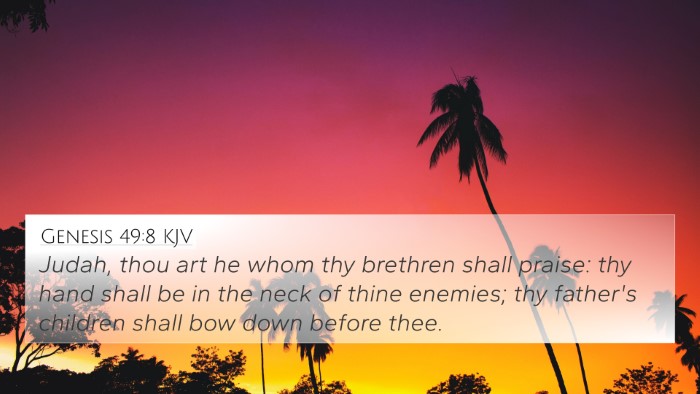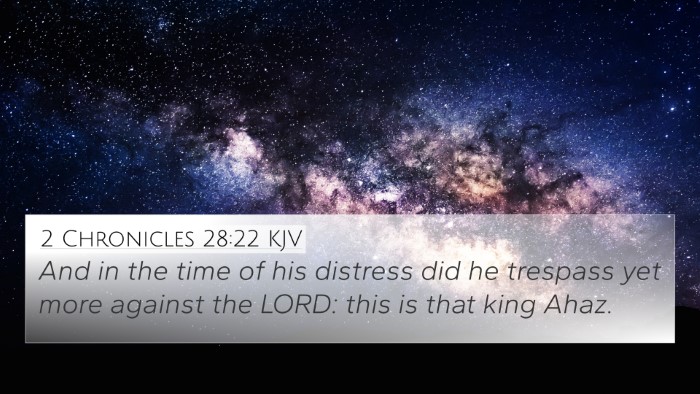Understanding Job 15:26
Job 15:26 reads: "He runneth upon him, even on his neck, upon the thick bosses of his bucklers." This verse depicts a vivid image of defiance and challenge, where the speaker describes an aggressive approach to confronting the Almighty or the forces of righteousness.
Summary of Insights from Public Domain Commentaries
The verse is part of a discourse by Eliphaz, one of Job's friends, who asserts the folly of challenging God. The surrounding context involves Eliphaz addressing Job, suggesting that his suffering is a result of iniquity, and he warns against arrogance before the divine.
Matthew Henry's Commentary
Matthew Henry emphasizes the arrogance displayed by the wicked, suggesting that they challenge God's authority with boldness. Henry notes that this verse highlights the heart of foolish pride, where men presume they can stand against divine justice, ignoring the consequences of such defiance. The "thick bosses of his bucklers" metaphorically represents the impenetrable defenses of God’s wrath against sin.
Albert Barnes' Notes
Albert Barnes interprets this verse in the context of human rebellion. He points out that the imagery of running upon God like a warrior indicates a reckless approach to divine justice. Barnes implies that this defiance is not only futile but comes from a heart that fails to understand the gravity of sin and the nature of God's holiness. He underscores the foolishness of thinking one can approach God without repentance and humility.
Adam Clarke’s Commentary
Adam Clarke brings attention to the established idea in the verse, which means that sinners, in their pride, disregard the protective wisdom of God. He notes that the "bucklers" are representative of God's defenses against the onslaught of human arrogance. Clarke suggests that the text serves as a warning against the folly of confronting God while in a state of sin, reinforcing the theme of humility before divine authority.
Related Bible Verses
- Job 4:4: Eliphaz stresses the protection provided by righteousness.
- Psalms 95:9: Reminds readers of the dangers in hardening their hearts against God.
- Isaiah 45:9: Discusses the futility of contending with one's Creator.
- Jeremiah 10:23: Affirms that human plans are not aligned with God's will.
- Proverbs 16:18: A warning that pride precedes destruction.
- Romans 1:20: Affirms that God's attributes are evident to all, leaving humanity without excuse.
- 1 Peter 5:5: Encourages humility before God, opposing the proud.
Thematic Connections and Cross-Referencing
This particular verse offers rich opportunities for thematic Bible verse connections. It illustrates the human inclination towards pride and rebellion against God—a theme echoed throughout Scripture:
- Comparative Analysis: The teachings of Proverbs often parallel the warnings given on pride and humility found in Job.
- Linking Scriptures: Connecting Job’s plight with Romans 3:23, where all have sinned, reinforces the universality of human error.
- Inter-Biblical Dialogue: Exploring how the themes in Job resonate with the life and teachings of Christ in the New Testament, especially regarding humility and repentance.
Conclusion
Job 15:26 serves not just as a stark warning against prideful behavior but also as a reminder of the protective wisdom inherent in submission to God. By cross-referencing the surrounding verses and themes throughout the Bible, one can better understand the implications of this verse and how it relates to the broader narrative of Scripture.







